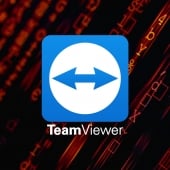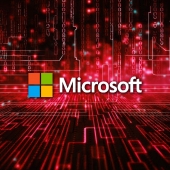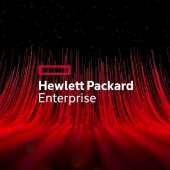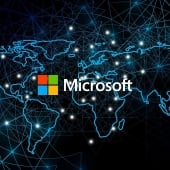-
TeamViewer links corporate cyberattack to Russian state hackers
RMM software developer TeamViewer says a Russian state-sponsored hacking group known as Midnight Blizzard is believed to be behind a breach of their corporate network this week.
- June 28, 2024
- 10:42 AM
 1
1
-
Microsoft says Russian hackers breached its systems, accessed source code
Microsoft says the Russian 'Midnight Blizzard' hacking group recently accessed some of its internal systems and source code repositories using authentication secrets stolen during a January cyberattack.
- March 08, 2024
- 10:31 AM
 4
4
-
Microsoft reveals how hackers breached its Exchange Online accounts
Microsoft confirmed that the Russian Foreign Intelligence Service hacking group, which hacked into its executives' email accounts in November 2023, also breached other organizations as part of this malicious campaign.
- January 26, 2024
- 10:23 AM
 4
4
-
HPE: Russian hackers breached its security team’s email accounts
Hewlett Packard Enterprise (HPE) disclosed today that suspected Russian hackers known as Midnight Blizzard gained access to the company's Microsoft Office 365 email environment to steal data from its cybersecurity team and other departments.
- January 24, 2024
- 04:50 PM
 0
0
-
Russian hackers stole Microsoft corporate emails in month-long breach
Microsoft warned Friday night that some of its corporate email accounts were breached and data stolen by a Russian state-sponsored hacking group known as Midnight Blizzard.
- January 19, 2024
- 07:02 PM
 5
5
-
Russian state hackers lure Western diplomats with BMW car ads
The Russian state-sponsored hacking group 'APT29' (aka Nobelium, Cloaked Ursa) has been using unconventional lures like car listings to entice diplomats in Ukraine to click on malicious links that deliver malware.
- July 12, 2023
- 03:01 PM
 1
1
-
Russian hackers linked to widespread attacks targeting NATO and EU
Poland's Military Counterintelligence Service and its Computer Emergency Response Team have linked APT29 state-sponsored hackers, part of the Russian government's Foreign Intelligence Service (SVR), to widespread attacks targeting NATO and European Union countries.
- April 13, 2023
- 10:27 AM
 2
2
-
Microsoft: Russian malware hijacks ADFS to log in as anyone in Windows
Microsoft has discovered a new malware used by the Russian hacker group APT29 (a.k.a. NOBELIUM, Cozy Bear) that enables authentication as anyone in a compromised network.
- August 25, 2022
- 12:36 PM
 1
1
-
Russian APT29 hackers abuse Azure services to hack Microsoft 365 users
The state-backed Russian cyberespionage group Cozy Bear has been particularly prolific in 2022, targeting Microsoft 365 accounts in NATO countries and attempting to access foreign policy information.
- August 19, 2022
- 11:10 AM
 0
0
-
Russian hackers compromise embassy emails to target governments
Security analysts have uncovered a recent phishing campaign from Russian hackers known as APT29 (Cozy Bear or Nobelium) targeting diplomats and government entities.
- May 01, 2022
- 11:06 AM
 0
0
-
France warns of Nobelium cyberspies attacking French orgs
The French national cyber-security agency ANSSI said today that the Russian-backed Nobelium hacking group behind last year's SolarWinds hack has been targeting French organizations since February 2021.
- December 06, 2021
- 01:46 PM
 0
0
-
Russian hacking group uses new stealthy Ceeloader malware
The Nobelium hacking group continues to breach government and enterprise networks worldwide by targeting their cloud and managed service providers and using a new custom "Ceeloader" malware.
- December 06, 2021
- 10:00 AM
 0
0
-
Microsoft warns of surge in HTML smuggling phishing attacks
Microsoft has seen a surge in malware campaigns using HTML smuggling to distribute banking malware and remote access trojans (RAT).
- November 12, 2021
- 10:27 AM
 0
0
-
Microsoft: Russian SVR hacked at least 14 IT supply chain firms since May
Microsoft says the Russian-backed Nobelium threat group behind last year's SolarWinds hack is still targeting the global IT supply chain, with 140 resellers and technology service providers attacked and at least 14 breached since May 2021.
- October 25, 2021
- 04:37 AM
 0
0
-
Microsoft: Russian state hackers behind 53% of attacks on US govt agencies
Microsoft says that Russian-sponsored hacking groups are increasingly targeting US government agencies, with roughly 58% of all nation-state attacks observed by Microsoft between July 2020 and June 2021 coming from Russia.
- October 08, 2021
- 07:04 AM
 4
4
-
New Tomiris backdoor likely developed by SolarWinds hackers
Kaspersky security researchers have discovered a new backdoor likely developed by the Nobelium hacking group behind last year's SolarWinds supply chain attack.
- September 29, 2021
- 12:09 PM
 0
0
-
Microsoft: Nobelium uses custom malware to backdoor Windows domains
Microsoft has discovered new malware used by the Nobelium hacking group to deploy additional payloads and steal sensitive info from Active Directory Federation Services (AD FS) servers.
- September 27, 2021
- 04:03 PM
 1
1
-
Google: Russian SVR hackers targeted LinkedIn users with Safari zero-day
Google security researcher shared more information on four security vulnerabilities also known as zero-days, unknown before they discovered them being exploited in the wild earlier this year.
- July 14, 2021
- 12:56 PM
 3
3
-
Nobelium hackers accessed Microsoft customer support tools
Microsoft says they have discovered new attacks conducted by the Russian state-sponsored Nobelium hacking group, including a hacked Microsoft support agent's computer that exposed customer's subscription information.
- June 26, 2021
- 12:11 PM
 0
0
-
US seizes domains used by APT29 in recent USAID phishing attacks
The US Department of Justice has seized two Internet domains used in recent phishing attacks impersonating the U.S. Agency for International Development (USAID) to distribute malware and gain access to internal networks.
- June 01, 2021
- 04:56 PM
 1
1
- 1
- 2


 4
4

















